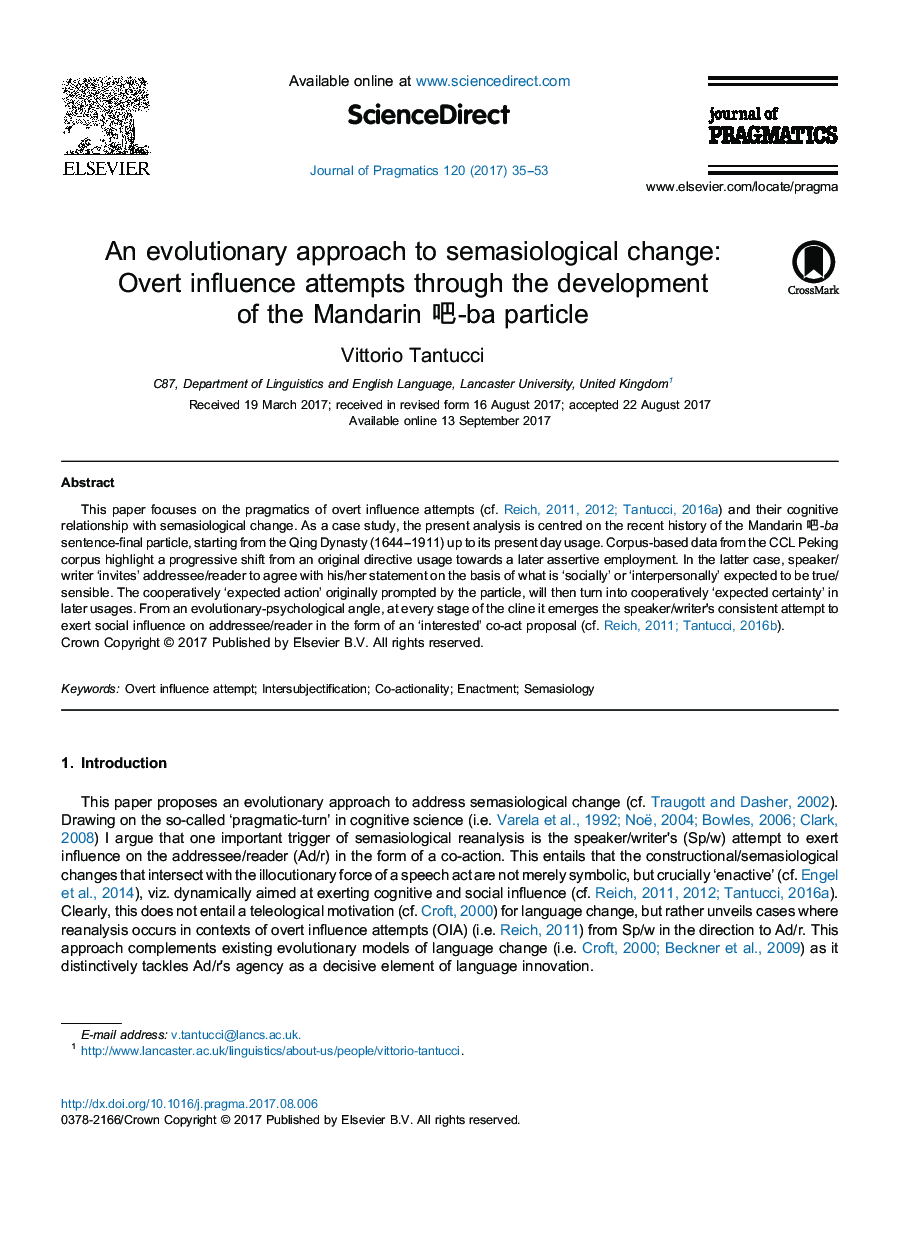| Article ID | Journal | Published Year | Pages | File Type |
|---|---|---|---|---|
| 5042612 | Journal of Pragmatics | 2017 | 19 Pages |
â¢Semasiological change is affected by co-actional attempts to exert cognitive/social influence.â¢Constructional/semasiological changes are not merely symbolic, but rather 'enactive'.â¢Addressee's expected agency is a decisive element of language innovation.â¢The Mandarin particle å§-ba shifts from physical to epistemic forms of overt influence attempts.
This paper focuses on the pragmatics of overt influence attempts (cf. Reich, 2011, 2012; Tantucci, 2016a) and their cognitive relationship with semasiological change. As a case study, the present analysis is centred on the recent history of the Mandarin å§-ba sentence-final particle, starting from the Qing Dynasty (1644-1911) up to its present day usage. Corpus-based data from the CCL Peking corpus highlight a progressive shift from an original directive usage towards a later assertive employment. In the latter case, speaker/writer 'invites' addressee/reader to agree with his/her statement on the basis of what is 'socially' or 'interpersonally' expected to be true/sensible. The cooperatively 'expected action' originally prompted by the particle, will then turn into cooperatively 'expected certainty' in later usages. From an evolutionary-psychological angle, at every stage of the cline it emerges the speaker/writer's consistent attempt to exert social influence on addressee/reader in the form of an 'interested' co-act proposal (cf. Reich, 2011; Tantucci, 2016b).
